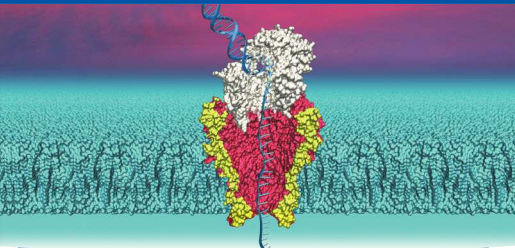Understanding the Principle of Hunger.

Understanding the Principle of Hunger
We often believe that hunger is simply a natural physiological reaction to not eating, as inevitable as a rainstorm.
We have a mental image that as our stomach fills up with food, signals our brain that we are full.
We imagine that as our stomach empties and drops below a critical threshold, our brain signals us to eat.
That is not the entire truth. Consider how hungry you feel first thing in the morning.
Studies of circadian rhythm confirm that for most people, hunger is shallow first thing in the morning, even though it has been twelve to fourteen hours since the last meal.
Conversely, hunger at dinnertime is often very high, even though we have often eaten lunch just a mere six hours ago.
Hunger is not simply a reflection of the amount of food filling our stomachs.
Instead, hunger is partly a learned phenomenon.
Even when we don’t think we’re hungry, smelling a steak and hearing it sizzle may make us quite ravenous.
These kinds of food-related stimuli do not need to be learned; they’re innate in almost everyone.
But we can also learn to become hungry during conditions that are intrinsically unrelated to food.
For example, the sound of a dinner bell can create hunger where it had not previously existed.
The power of these stimuli was demonstrated by the classic experiments of Pavlov’s dogs.
In the 1890s, the Russian scientist Ivan Pavlov was studying salivation in dogs.
Dogs salivate when they see food and expect to eat.
This reaction occurs naturally and without training.
In his experiments, lab assistants fed the dogs, and the dogs soon began to associate lab coats with eating.
There is nothing intrinsically appetizing about a man in a lab coat, but because the dogs consistently were fed by a lab-coat-wearing man, the lab coat and food became paired in the dogs’ minds.
Soon the dogs began to salivate at the sight of the lab coats alone, even if food was not present.
Ivan Pavlov, the genius that he was, noticed this association, and before you knew it, he was packing his bags to Stockholm to receive his Nobel Prize.
We can become hungry for many reasons.
Some stimuli naturally make us hungry, such as the smell and sizzle of steak.
Other stimuli need to be consistently associated with food to provoke hunger on their own.
These conditioned responses can be very powerful.
There are measurable physical reactions to the mere suggestion of food.
Salivation, pancreatic fluid secretion, and insulin production increase immediately upon the expectation, not the actual delivery, of food.
This helps synchronize the gut response and the incoming food and is known as the cephalic phase response.
The reason great restaurants spend so much time and energy on plating food is because they understand that our enjoyment does not begin with the first bite it begins when we see the food.
An attractively plated meal makes us hungrier than the same food slopped haphazardly into a dog dish.
Hunger, in this case, starts with the eyes.
But there are infinite other possible associations with foods that make us hungry.
- If we consistently eat every morning at 7:00 a.m.,
- Then we develop a conditioned response to that time and become hungry at 7:00 a.m.,
- Even if we ate a huge meal at dinner the night before.
- The same applies to lunch and dinnertime.
- We become hungry merely because of time, not any true intrinsic hunger.
- This is learned only through decades of association.
- Children, on the other hand, often refuse food early in the morning because they are simply not hungry.
- Similarly, by consistently pairing movies with delicious popcorn and sugary drinks, the mere thought of a movie may make us hungry.
- Food companies, of course, spend billions of dollars trying to condition us to make these associations.
- Food at the ball game
- Food at the movies
- Food while watching TV
- Food in between halves at our kids’ soccer games
- Food while listening to a lecture
- Food at a concert
- Conditioned responses, everyone.
- The possibilities are endless.
Intermittent fasting offers a unique solution.
By randomly skipping meals and varying the intervals at which we eat, we can break our habit of eating three times a day, come hell or high water.
We no longer have a conditioned response to hunger every three to five hours.
We no longer become hungry simply because it’s noon or we’re at the movies.
That’s not to say we don’t get hungry at all we do, but not simply because we have a conditioned response to a certain time or occasion.
Instead, we get hungry because we are hungry.
We allow our body to tell us when it needs nourishment rather than eating by the clock.
Have you ever been so busy at work or school that you simply forgot to eat breakfast and lunch?
You were simply too focused on the task at hand to heed any of the numerous hunger cues.
Your body just used some of the plentiful energy stored as body fat as fuel.








